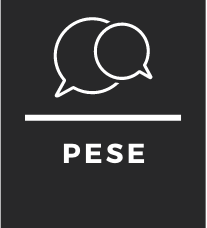Background
The PESE project aims to research the labour market in partner countries and establish the type of English skills employers currently require from their employees. The deliverables of the PESE projects will help to upskill the participants and empower their position in the labour market.
The expectation is that on completion of the project, members of the direct target group (unemployed learners) involved in piloting and those reached through a widespread dissemination strategy will increase their professional English skills and thus boost their employability.
The project will eventually produce an e-course which will obviously benefit those who live in rural areas without access to language schools or face-to-face classes.
The project so far
The project kicked off in November 2020 and work on the first intellectual output began in earnest in January 2021 and was completed this month.
From the initial research, it came as no surprise to discover that English language is the most demanded in the labour market (90% job offers). This is followed by French (7,2%), German (7,1%), Portuguese (1,3%), and Italian (0,8%). This pattern was seen in most of the partner countries. But the main of this output was to understand the current needs of EU employers in respect of the English use of their employees.
All partners conducted research into the current labour market requirements for English in each partner country. Afterwards, partners studied the intervention methods, techniques and best practices used in each country to teach unemployed people and in particular methods used to teach them English. Two such approaches were broadly categorised as enabling intervention and reinforcing intervention conducted either on an Individual and small group via one-to-one coaching, or a classroom-based education where instruction is intensive and targeted at group-level where this includes peer instruction and feedback.
The final step for this output was to map the particular skills and competences required in each partner country so that this could be collated into a handbook and used as a basis to inform other outputs.
This handbook outlines the skills required by employers for employees in partner counties working in professional white-collar positions such as civil service, finance, logistics, accountancy, and business and executive management and blue-collar manual personnel employed across a range of fields. The research also includes feedback from professional language teachers employed by language centres facilitating onsite and online language courses to businesses within the partner countries and internationally.
According to the research conducted on the type of interventions available to upskill unemployed people in the partner countries there are several public and private initiatives that address the teaching of English, with some courses tailored to specific business activities, although a significant number of examples point to more general English courses. In some countries, like Malta for example, there is a lack of opportunities for unemployed people to learn business and professional English. In countries such as Cyprus, formal education does not prepare learners in Professional English and in Spain, for example, the research identified a group of 35-45 years old who did not even have sufficient opportunities to learn English at schools, and, therefore, are less equipped to deal with employers’ requirements.
With regard to the professional English courses being offered across the partner countries, they all seem short-duration courses focused on the specific sectors they cater for, with a particular emphasis business English. They also tend to adopt a more traditional approach in terms of teaching, focusing on grammar, vocabulary, role play exercises, among others while not giving special relevance to some crucial aspects like cultural awareness, office skills, non-verbal communication, diplomacy and building professional relationships.
Therefore, we see these results as an opportunity to build an innovative professional English course that is based on a more comprehensive approach, integrating cultural competence, language specific-skills, on-line communication skills, non-linguistic communication and professional skills. This can be achieved with the use of technological tools to enable a more dynamic teaching and learning process.
To sum up, this handbook will not only serve as a guide for the next outputs but will work as a stand-alone reference for educators of the English Language, whether they work in VET institutions, companies or as freelancers.
Stay tuned for our next updates on our website here and on our Facebook page.
